Activism and Social Change.
The theme for 2025 is Activism and Social Change, throughout history LGBT+ people have been activists and helped shape and create social change, advancing society for everyone using many different approaches to activism: Protests and rallies, Campaigns – letter writing and social media, Boycotts and direct action and many more.
This year, five LGBT+ people have been chosen for their work in creating social change from across the centuries in progressing change for women, the environment, housing and many more.
Octavia Hill
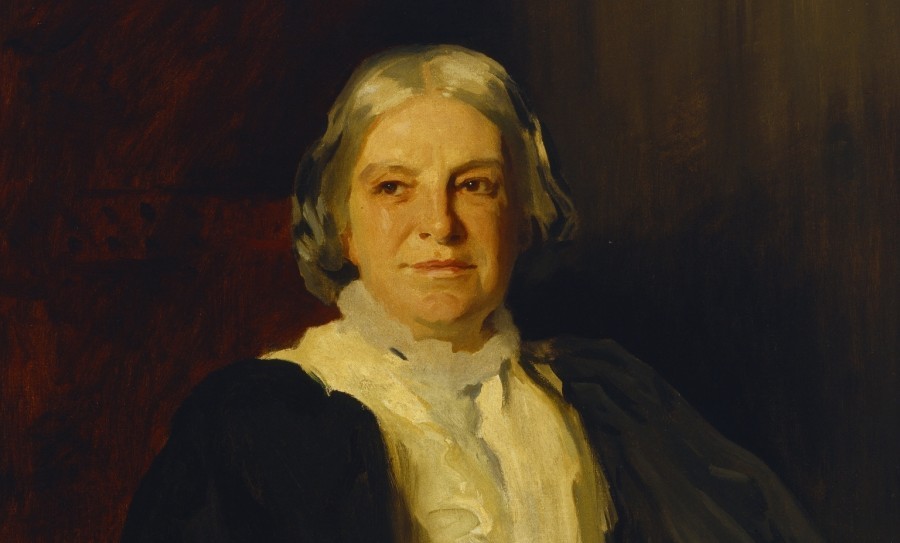
Octavia Hill was born on 3rd December 1838. At the age of 14 Octavia was put in charge of a workroom at the Ladies Guild, a Christian socialist co-operative in London managed by her mother whilst working there the poverty that she witnessed had a profound effect on her. This led to Octavia setting out to improve working-class living conditions, this was also inspired due to her encounters with prominent thinkers who supported her ideas. In 1864, money from Ruskin enabled Hill to put her ideas into practice. She began buying neglected and decaying properties in London: overhauling them and transforming their tenants’ lives. She also campaigned to preserve open spaces. She was firm in her style of management, insisting that all the tenants paid their rent on time, but she also took a personal interest in their lives. Her scheme was a success and rapidly expanded with new investors. By 1874 Octavia had over 3,000 tenancies around London. In 1877, along with her sister Miranda, she formed the Kyrle Society, with the aim of bringing beauty, nature, arts and music to everyone. In 1895 the National Trust for Places of Historic Interest or Natural Beauty was founded with the help of Robert Hunter who Octavia met through a campaign that she joined to save Swiss Cottage Fields from development which unfortunately failed. For the next 17 years Octavia continued to fight for the preservation of the countryside. She helped the National Trust to buy and protect its first land and houses and campaigned for the preservation of footpaths to ensure everyone had right of access to the land.
Ivor Cummings
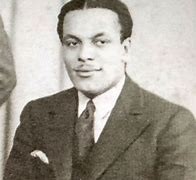
Ivor Cummings was born on 10th December 1913.
In 1935 aged 22 Ivor worked as the warden of Aggrey House, Bloomsbury, a hostel set up for African students and people of African descent in Britain. Such hostels were opened to accommodate students from Africa and the Caribbean who might otherwise have had to face a harsh reality – being barred from renting rooms. The hostels proved very successful, providing practical support and creating a sense of community. In his role as warden Ivor looked after student welfare, including organising social events, from tennis tournaments and drives to dances and lectures. He was clearly politically engaged, with speakers at Aggrey House covering themes such as Present day slavery and the problem of its abolition. Despite the controversy connected to Aggrey House, this was one of many instances that showed Ivor’s interest in the welfare of Black individuals. Ivor was gay and socialised in Black queer intellectual circles in the 1930s and 1940s. In 1939, he was listed as single on the 1939 Register, living at Aggrey House. This was an era where it was difficult to be open about being gay, as sex acts between men were criminalised. In 1941 Ivor became the first Black person to obtain a position at the Colonial Welfare Office. In 1942, the League of Coloured Peoples commended the increasingly important and visible roles being taken up by Black individuals such as Ivor Ivor also received backlash for supporting government institutions which were perceived by many to be upholding systems of oppression at home and across the Colonies. In early June 1948, Ivor received an OBE for his Colonial Office work. At this time, very few people of colour were recognised with this title.
Annie Kenney
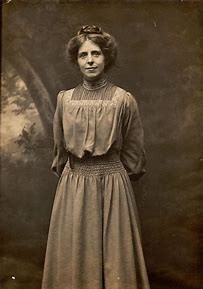
Annie Kenney was born on 13th September 1879. In 1905 Annie became involved with the Pankhursts and the WSPU (Women’s Social and Political Union) when she and her sister Jessie heard Teresa Billington-Greig and Christabel Pankhurst speak at the Oldham Clarion Vocal Club. She was invited to meet Emmeline Pankhurst a week later. Recognising a strong ally, the Pankhurst family recruited Annie into the WSPU and on her weekly half days off they trained her in public speaking. Annie and her sister Jessie handed out women’s suffrage leaflets to women working in the mills in Oldham. In October 1905, during a Liberal party rally at the Manchester Free Trade Hall in Manchester Christabel Pankhurst and Annie interrupted a meeting presided over by then local Manchester MP Winston Churchill to shout, “Will the Liberal government give votes to women?” When they were repeatedly ignored, they unfurled a banner with the now famous slogan ‘Votes for Women’ across it. They were thrown out of the meeting and arrested for obstruction, becoming the first women to be arrested for campaigning in this way for women’s enfranchisement. Given the choice of a fine or a prison sentence, both took the prison sentence despite local MP Winston Churchill offering to pay the fine on their behalf. Annie received 3 days in prison for her involvement, Christabel was imprisoned for 5 days as she allegedly spat at a policeman. Around 2,000 people protested against Annie's imprisonment in Stevenson Square, Manchester. On 9 March 1906, the suffragettes marched to Downing Street and Annie climbed the prime minister’s car to address the crowd which she was arrested for. Annie became Deputy Leader of the WSPU in 1912.
Charlie Kiss
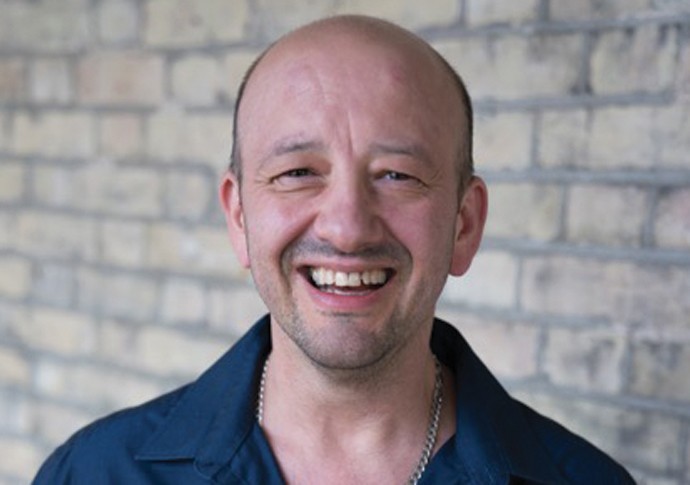
Charlie Kiss was born 21st July 1965. The early part of Charlie’s life saw him growing up playing with other boys, loving football calling himself David and by the age of 10 becoming attracted to girls. At the age of 16, Charlie was living independently and had become part of the lesbian feminist community in York. In 1982 Charlie travelled to London for anti-nuclear protests, where he was arrested and charged for the first time just after his 17th birthday. Soon after this, Charlie visited Greenham Common becoming the youngest woman there and worked at completing his A-levels while living in a tent. He was one of the 44 women who broke through the fence at dawn on New Year’s Day, 1983, dancing on top of the missile silos, captured in a now iconic photograph, these actions led to brief prison sentence. In 2002 Charlie began the transition to being male. In 2015 Charlie became the first trans man to run for Parliament in the UK standing for the Green Party, he did not get elected but won a record eight per cent of the vote. At the Green Party conference, he organised a panel looking at gender diversity and the discrimination faced by trans, intersex and non-binary people. This proved an important step along the journey to the Green Party’s adoption of trans-inclusive policies. In 2016, having left the Labour Party some 20 years before in protest over the war in Iraq, Charlie re-joined Labour, expressing his optimism about Jeremy Corbyn’s socialist manifesto, specifically the Party’s promise of a nuclear-free future.
Olaudah Equiano
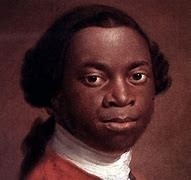
Olaudah Equiano was born in 1745. Equiano was kidnapped with his sister at around the age of 11, sold by local slave traders and shipped across the Atlantic to Barbados and then Virginia. In Virginia he was sold to a Royal Navy officer, Lieutenant Michael Pascal, who renamed him Gustavus Vassa after the 16th-century Swedish king. Equiano travelled the oceans with Pascal for eight years, during which time he was baptised and learned to read and write. Pascal then sold Equiano to a ship captain in London, who took him to Montserrat, where he was sold to the prominent merchant Robert King. While working as a deckhand, valet and barber for King, Equiano earned money by trading on the side. In only three years, he made enough money to buy his own freedom. Equiano then spent much of the next 20 years travelling the world, including trips to Turkey and the Arctic.In 1786 in London, he became involved in the movement to abolish slavery. He was a prominent member of the 'Sons of Africa', a group of 12 black men who campaigned for abolition.